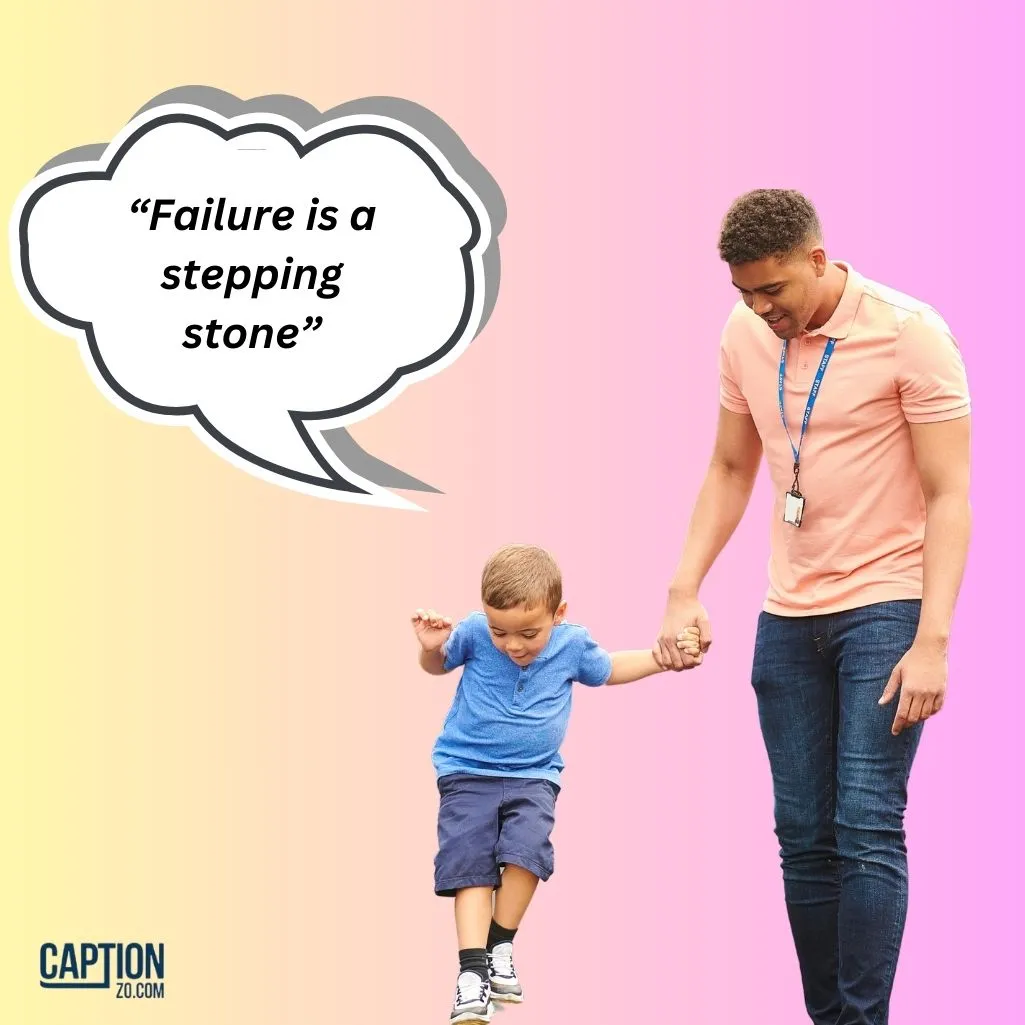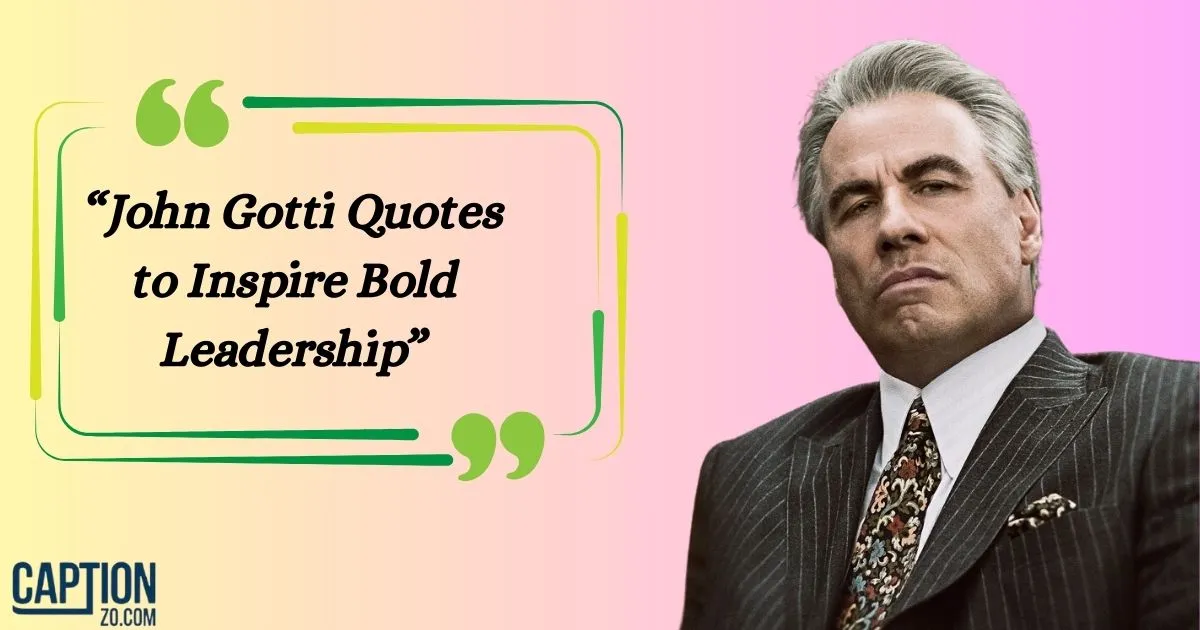“Learn from the King of the Streets how bold leadership is about fearlessness, loyalty, and strategy.”
John Gotti, famously known as “The Teflon Don,” was a polarizing figure in American history. As the head of the Gambino crime family, his larger-than-life persona and unyielding confidence left an indelible mark on the world of organized crime and beyond. Gotti’s approach to leadership, bold, decisive, and commanding offers lessons that, when stripped of their criminal context, can inspire powerful leadership in business, personal life, and beyond.
At the core of Gotti’s leadership style was his ability to command loyalty and project an air of unshakable confidence. He knew how to inspire his “team,” setting clear expectations while exuding an undeniable charisma that kept those around him in line. While his methods may have been controversial, the lessons in bold decision-making and staying true to one’s vision can resonate with leaders in any walk of life.
This article explores some of John Gotti’s most memorable quotes, distilling their essence into leadership principles. While his legacy remains controversial, his words reveal timeless truths about commanding respect, taking risks, and leading with conviction.
On Power and Leadership
- True power is influence, not control.
- Leaders are made in moments of crisis.
- Power demands responsibility, or it becomes tyranny.
- Leadership is about serving, not ruling.
- A strong leader earns respect, not fear.
- Influence outlasts authority.
- Power can corrupt if not grounded in values.
- Leadership requires vision beyond personal gain.
- Great leaders inspire trust through consistency.
- Power thrives on alliances, not isolation.
- A leader listens more than they speak.
- Authority fades; respect remains.
- The strongest leader admits their weaknesses.
- Leadership is about making others better.
- Power should uplift, not oppress.
- A leader’s integrity is their true strength.
- Power gained without struggle is rarely valued.
- The best leaders create more leaders.
- Leadership isn’t about titles but action.
- Power should reflect the will of the people.
On Loyalty and Trust
- Loyalty is earned, not demanded.
- Trust is fragile but invaluable.
- Loyalty without trust is hollow.
- Betrayal often begins with silence.
- True loyalty stands firm in adversity.
- Trust grows through honesty, not perfection.
- Loyalty can’t exist without respect.
- Trust is built in drops and lost in buckets.
- A loyal friend is a rare treasure.
- Trust isn’t given; it’s proven.
- Loyalty should be to principles, not just people.
- Trust requires vulnerability.
- Blind loyalty leads to blindness.
- Trust bridges the gaps between people.
- Loyalty is steadfast, not situational.
- Trust is the foundation of all relationships.
- Betrayal hurts most when trust was deepest.
- Loyalty doesn’t demand silence in wrongdoing.
- Trust can be rebuilt but never the same.
- True loyalty balances love and truth.
On Crime and the Criminal World
- Crime thrives in the shadows of desperation.
- The line between survival and crime is often thin.
- Every criminal act leaves a trail of victims.
- The allure of crime is fleeting; consequences endure.
- Power in the criminal world is fleeting and brutal.
- Crime stems as much from society as individuals.
- The law isn’t always just, and crime isn’t always senseless.
- Greed is the heart of most crimes.
- A criminal’s success is society’s failure.
- Every heist has a mastermind and a fall guy.
- Crime promises wealth but delivers paranoia.
- Loyalty in crime is often a façade.
- The criminal world operates on fear, not respect.
- Justice doesn’t always catch up, but consequences do.
- Organized crime thrives where systems are weak.
- The thrill of crime often ends in regret.
- Criminals rationalize their actions to survive.
- Crime doesn’t discriminate, but punishment often does.
- The cost of crime is more than monetary.
- Crime destroys as much within as it does without.
On Success and Failure
- Success is the sum of small efforts repeated daily.
- Failure is a stepping stone, not a dead end.

- Success without humility leads to downfall.
- Failure is a teacher disguised as loss.
- Success isn’t just achieving goals; it’s finding fulfillment.
- Failure reveals character more than success.
- True success uplifts others, not just yourself.
- Success requires perseverance, not perfection.
- Every failure carries the seed of growth.
- Success without struggle is rarely sustainable.
- Failure is proof of effort.
- Define your own success, or others will.
- Success begins where comfort ends.
- Failure humbles the proud and sharpens the determined.
- True success balances ambition and contentment.
- Failures often precede breakthroughs.
- Success isn’t final; growth is continuous.
- Celebrate small successes along the journey.
- Fear of failure hinders success.
- Failure redirects, but success fulfills.
On Personal Philosophy
- Happiness isn’t found; it’s made.
- Live with purpose, not just ambition.
- Gratitude turns little into enough.
- Growth comes from discomfort.
- Your mindset shapes your reality.
- Seek progress, not perfection.
- Wisdom begins with curiosity.
- Integrity defines who you are when no one’s watching.
- Embrace change as the only constant.
- Simplicity leads to clarity.
- Listen more than you speak.
- Value time over possessions.
- Live for moments, not things.
- Kindness is strength, not weakness.
- Failures fuel wisdom.
- Balance is the key to a fulfilled life.
- Stay true to your values, even under pressure.
- Purpose fuels persistence.
- Dream big, but act small.
- Life’s meaning is found in connection.
“Tropic Thunder Quotes for Laughs and Movie Fans“
On The Media and Public Perception
- Perception isn’t always reality.
- Media shapes narratives but not truths.
- Public opinion is a fickle master.
- Headlines grab attention, not always accuracy.
- Beware the power of spin.
- The media feeds on fear and spectacle.
- Popularity often overshadows substance.
- Public perception changes with time.
- Stories are curated, not impartial.
- Influence can be wielded subtly.
- Truth is the casualty of sensationalism.
- Public opinion can build or destroy.
- Question the narrative, seek the facts.
- Media can amplify both good and evil.
- Social media skews reality.
- Trust is the media’s greatest currency.
- Perception influences action more than truth.
- The loudest voices often drown nuance.
- Transparency builds credibility.
- Remember: every story has two sides.
On Family and Loyalty
- Family is chosen as much as it’s given.
- Loyalty to family builds resilience.
- Blood ties aren’t the only bonds.
- Family is a foundation, not a cage.
- Loyalty is tested, not assumed.
- Love requires effort, even in family.
- Forgiveness strengthens family ties.
- Family grows through mutual respect.
- True loyalty is unconditional.
- Support builds strong family bonds.
- A loyal family is life’s greatest blessing.
- Family loyalty shouldn’t blind reason.
- Families grow stronger through challenges.
- Respect binds families closer than obligation.
- Family loyalty begins with trust.
- Traditions create lasting family unity.
- Family loyalty transcends disagreements.
- A loyal family member protects and uplifts.
- Choose loyalty over pride in family matters.
- Family isn’t perfect, but it’s irreplaceable.
On The Legal System
- Justice and fairness aren’t always the same.
- The law reflects society’s priorities.
- Innocence shouldn’t rely on wealth.
- Equality before the law remains an ideal.
- Laws evolve with society.
- The legal system is as flawed as its makers.
- Justice delayed is justice denied.
- The system protects, but also punishes.
- The letter of the law isn’t its spirit.
- Power often skews legal outcomes.
- Legal battles don’t always yield truth.
- Advocacy is the heart of the system.
- Laws need enforcement to matter.
- Rights must be defended, not assumed.
- The law isn’t always moral.
- Reform is a constant need in justice.
- Judges interpret, they don’t create.
- Evidence is the cornerstone of fairness.
- Justice requires balance, not perfection.
- Law should serve people, not oppress them.
On Personal Integrity
- Integrity is living your values.
- Character is built on integrity.
- Speak the truth, even when it’s hard.
- Integrity earns trust.
- Actions define integrity more than words.
- Integrity grows through challenges.
- Stay true, even when no one is watching.
- Honesty anchors integrity.
- Compromise principles, and you lose yourself.
- Integrity inspires respect.
- Ethics define long-term success.
- Live consistently with your beliefs.
- Integrity doesn’t seek approval.
- Do the right thing, not the easy thing.
- Integrity is self-respect in action.
- Stand firm on your principles.
- Integrity transcends pressure.
- Be fair, even when it costs you.
- Integrity protects against regret.
- Choose integrity over popularity.
On Life and Philosophy
- Life’s beauty lies in its impermanence.

- A meaningful life is a life of service.
- Live with purpose and passion.
- Balance ambition with gratitude.
- Embrace the unknown as life’s gift.
- True wealth is found in time and love.
- Life teaches through challenges.
- Philosophy guides action, not just thought.
- Happiness isn’t the goal but the path.
- Love deeply, live fully.
- Learn from every experience.
- Simplicity leads to happiness.
- Accept change as life’s rhythm.
- Seek wisdom in every moment.
- Every moment is a chance to start anew.
- Question everything, but love what you find.
- Peace begins within.
- Life is lived best in the present.
- Philosophy is the art of understanding.
- Life’s meaning is found in the journey, not the destination.
Key Insight:
1. What is the most inspiring leadership quote from John Gotti?
One of Gotti’s most notable quotes is, “If you think your boss is stupid, remember: you wouldn’t have a job if he was any smarter.” It speaks to the importance of respecting leadership and playing your role effectively.
2. Can criminal figures like Gotti teach us positive leadership lessons?
While Gotti’s criminal activities are not to be glorified, his leadership skills, such as decisiveness and charisma, can be studied separately as valuable traits in any field.
3. What made John Gotti a bold leader?
Gotti’s fearlessness, confidence, and ability to rally people behind him made him a standout leader. He wasn’t afraid to take risks and always exuded authority.
4. How can I apply Gotti’s leadership principles ethically?
Focus on his ability to inspire loyalty, communicate clearly, and take decisive action. Apply these qualities with integrity, honesty, and a commitment to doing good.
5. Why is Gotti’s leadership style still relevant today?
In a world that values strong decision-making and confidence, Gotti’s bold approach remains a source of inspiration for leaders seeking to make an impact—without the criminal undertones, of course.
Wrap-Up:
John Gotti’s legacy is a mix of fascination and infamy, but his bold leadership style remains an undeniable case study.
When it’s his ability to inspire loyalty, command attention, or make tough decisions, Gotti’s words remind us of the power of unwavering confidence and fearless leadership. While his methods are a reminder of the importance of ethical boundaries, his leadership lessons inspire us to lead with courage, clarity, and conviction.





